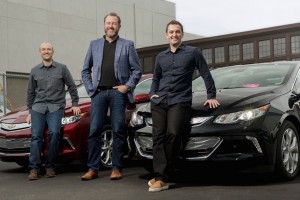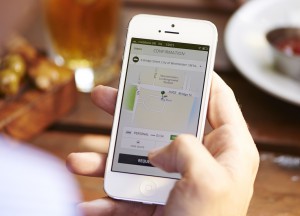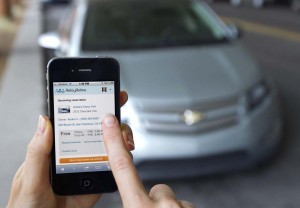Despite offering motorists an alternative to traditional vehicle ownership, a new study contends that ride- and car-sharing services such as Uber, Lyft and Turo won’t hurt new car sales.
That has become a critical worry for automakers around the world, with some analysts predicting a sharp increase in the number of people who will rely on those services to get around on a day-to-day basis. Nearly 6 million people worldwide already use car- and ride-sharing, a figure predicted to more than quintuple over the next five years.
But despite that growth, these services will have “limited impact on current or future vehicle ownership,” according to a new study by Kelley Blue Box.
Though some subscribers might use Uber or Lyft, for example, as an alternative to owning a car, the study suggests that most customers simply see the services as alternatives to conventional taxi and car rental companies.
“While there are numerous benefits to ride sharing and car sharing, our data reveals that owning a car still reigns supreme, with reliability, safety and convenience all being major factors,” said Karl Brauer, a senior KBB analyst.

GM Pres. Dan Ammann, center, was all smiles after announcing the maker would invest $500 million with ride-sharing company Lyft.
(Growing number of Americans skipping their drivers licenses, turning to alternative means. Click Here for more.)
There are two distinct types of these new services. Ride-sharing companies like Uber and Lyft, among others, offer a modern take on the taxi. A customer calls for a vehicle by using a dedicated smartphone app, and no cash is directly involved in the transaction, the services billing a stored credit card.
Car-sharing companies such as ZipCar, meanwhile, provide short-term rentals priced to the minute or hour, rather than the day. And some, like Turo, let a subscriber rent vehicles owned by other motorists, rather than those in a company-operated fleet.
While two-thirds of the 1,900 US residents surveyed saw ride-sharing as a great way to get drunk drivers off the road, 74% said they still prefer to drive, when possible. Other key findings:
- Though 73% of the respondents said they’re aware of ride-sharing, only 16% have actually tried one of services, with Millennials and city dwellers most likely to catch a ride;
- The figures fall sharply for car-sharing, only 41% aware of that option, with a mere 7% having tried one of the services. And even then 76% that have still expect to buy a new or used car within the next two years;
- Vehicle ownership is more reliable than ride-sharing, according to 81% of the respondents – the figure at 78% compared to car-sharing. Owning a car is also viewed as safer and more convenient by a vast majority.
That said, the survey asked respondents to look into the relatively near future. What might happen with such services over the longer-term is far less certain.
A separate study released this past month by the Boston Consulting Group predicted that the number of users for these services will grow to 35 million in 2021, compared to 5.8 million today. That said, there will be stronger demand in Asia and Europe than in the U.S., according to the BCG report — which also saw such services eroding global sales.
(For more on the BCG study, Click Here.)
And while the new KBB study might provide some comfort to traditional automakers, manufacturers aren’t taking chances. A number of them – including General Motors, Ford and Daimler AG – now partner with car-sharing services such as ZipCar and Turo. GM also announced in January it was investing $500 million in Lyft, while buying bankrupt San Francisco-based ride-sharing company Sidecar.
“We want to be prepared” for whatever changes come to the automotive market, GM global product development chief Mark Reuss told TheDetroitBureau.com.
(GM has also launched new car-sharing service Maven. Click Here for more.)


